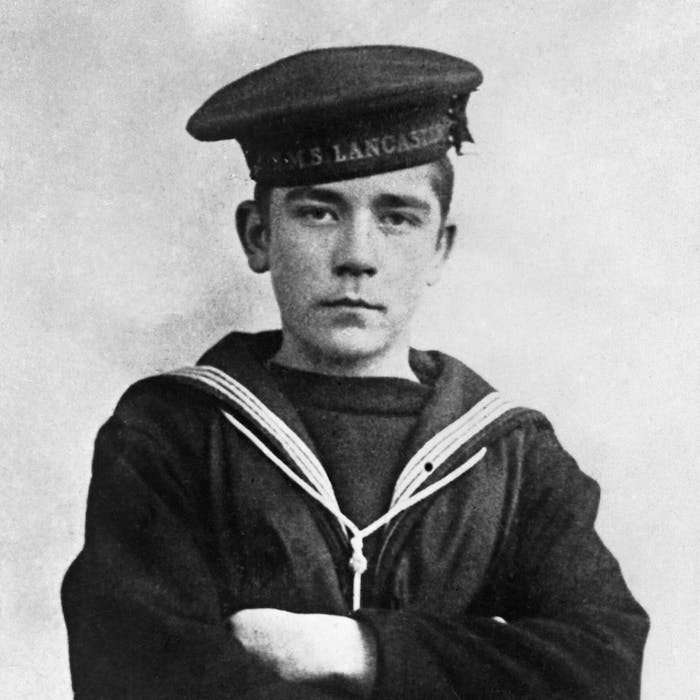
Jack Cornwell - youthful war hero remembered in London and Essex
John Travers Cornwell joined the Royal Navy aged just 15. By 16 he was dead and one of the most famous people in Britain, as the youngest person to be awarded a Victoria Cross in the First World War.
Cornwell, commonly known as Jack Cornwell or as Boy Cornwell, was the son of a tram driver and lived in East London. He joined the Boy Scouts just as the organisation started to catch on, and left school at the age of 13 to become a delivery boy.
At the start of the First World War, Jack's father and brothers went off to fight. With his parents' permission, Jack was accepted into the Royal Navy at 15 and began his training at Keyham Naval Barracks, Devonport.
He did well in his training, achieving high marks in gunnery and seamanship. He then became part of the crew of HMS Chester, a newly-commissioned light cruiser which soon joined the fleet at Scapa Flow.
On 31st May 1916, HMS Chester and Jack Cornwell both went into battle for the first time during the Battle of Jutland.
The ship was badly shelled by four German cruisers and Cornwell's position was hit four times, killing all the crew apart from Cornwell.
Critically wounded, he stayed with his gun awaiting orders, his crewmates lying dead around him.
Eventually taken ashore, he died in a Grimsby hospital just before his mother, travelling up by train from London, reached his bedside.
Posthumously awarded the Victoria Cross, the highest military honour, he became a national hero.
Jack Cornwell was initially buried in a common grave in Manor Park Cemetery, London, by his mother. However, as the story of Jack’s bravery captured the public imagination, it was decided to rebury his body with full military honours in the same cemetery a few weeks later.
The funeral was preceded by a spectacular procession with hundreds of Scouts lining the route and members of the Royal Naval Volunteer Reserve pulling the gun carriage on which rested the coffin.
£18,000 was raised in Jack's memory for the Jack Cornwell ward of the Royal Star and Garter Home, Richmond.
The John Cornwell Victoria Cross National Memorial (JCVCNM) was established in 1928, when a plot of land was purchased at Hornchurch with money raised by the Mayor of East Ham. Cottage homes were built at the site for needy, disabled or infirm former sailors and Royal Marines and their families. The six semi-detached houses and pathways are laid out in the form of a Victoria Cross.
Jack Cornwell is also commemorated in Little Ilford, near East Ham, in street names, a block of flats and a pub.
Around the Commonwealth, numerous military and youth organisations have buildings and awards named after Cornwell, and the gun at which he stood to the end is on display at the Imperial War Museum in London.
Rudyard Kipling's poem My Boy Jack was written in 1916 about Jack Cornwell. It was particularly poignant for the Kipling as his own young son, John, had been killed in the war in 1915.
All this appreciation for young Jack's bravery seems to have done his remaining family little good.
Tragically his brother was also killed in action in 1918 and his father died of bronchitis on war service in 1916.
His mother died in poverty in 1919, and two remaining younger siblings emigrated to Canada in the early 1920s in the hope of improving their lot.
Further reading
Links to external websites are not maintained by Bite Sized Britain. They are provided to give users access to additional information. Bite Sized Britain is not responsible for the content of these external websites.
